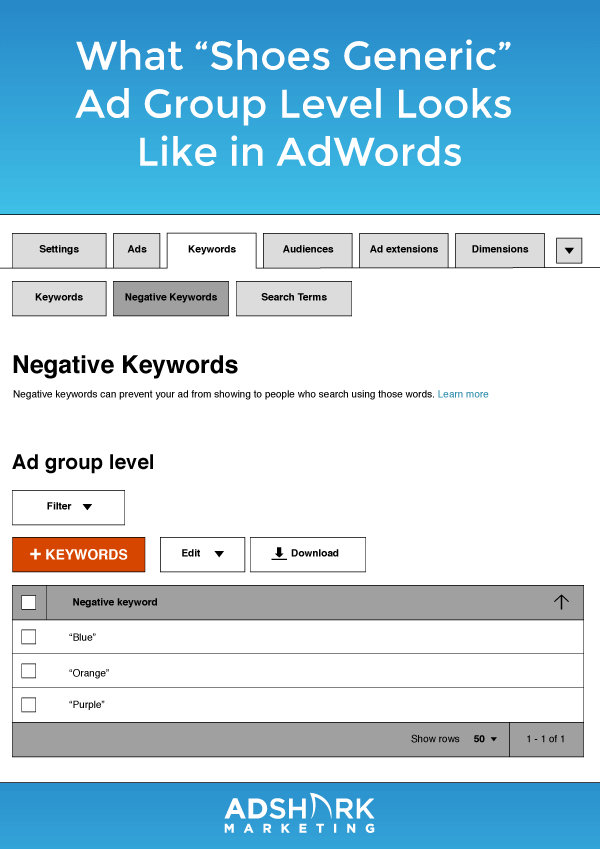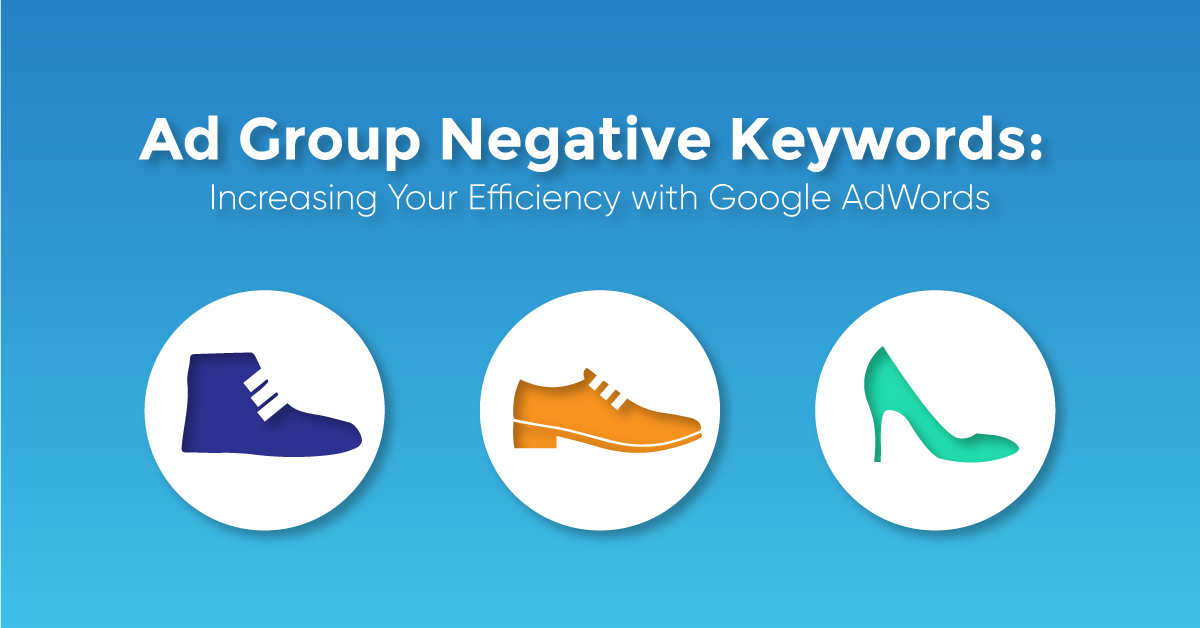Ad Group Negative Keywords: Increasing Your Efficiency with Google Ads
When digital marketers build out campaigns, it’s easy for them to miss the small but important details. Most think because they’ve looked through the search terms and posted Campaign Level negatives, they’re in the clear. If you’re one of these people, you may be overlooking something that can potentially cost your business time and money.
Overlooking the importance of Ad Group level negative keywords is very common and digital marketers must be aware of the implications it can cost.
In this blog article, we’ll discuss what Ad Group level negative keywords are, the importance of them, why they’re often overlooked, and provide an example of how they’re often overlooked in digital marketing.
What are Ad Group level negative keywords?
Negative keywords are terms you don’t want your ad to show up for. When you create a negative keyword list you can do it at the campaign level or the ad group level. If you set negative keywords at the campaign level it applies to all ads in that campaign. If you add negative keywords to the ad group it will apply only to the ad group.
The importance of Ad Group level negative keywords
Campaign level negative keywords are great for keeping irrelevant searches out of all ad groups associated with the campaign. But they don’t stave off searches tailored to each ad group. This is where the importance of Ad Group level negative keywords comes in.
There is no doubt that negative keywords are beneficial, but some digital marketers tend to just use them at the Campaign level, which can cause problems.
So why use negative keywords for ad groups? Without them, you may end up directing the wrong traffic to the wrong ad group and wasting ad spend. This can cause problems that you may not notice when analyzing the entire campaign.
Why Ad Group Level Negative Keywords Are Overlooked
- The search results are still relevant to your product.
- Not aware of the importance of Ad Group Level Negative Keywords.
- Doesn’t directly hurt your revenue.
1.) Relevant Search Results
Maybe the search results that came into your ad group are still relevant to your product but not to that actual ad group. When this happens, it’s easy to look past it. An example of this is if you have an ad group for “white bed sheets” and you notice there are searches for “black bed sheets.” Even though this is still a bed sheet related search, it’s not technically accurate and can cause skewed data.
2.) Digital marketers don’t understand the actual importance
Some marketers don’t use ad group level negative keywords because they don’t realize or understand the importance of them. Granted, digital marketers don’t notice the impact negatives create until they have them in place, helping to organize ad groups.
3.) It isn’t directly hurting your revenue
More than likely you won’t be able to notice the lack of ad group negative keywords hurting your revenue directly. Instead, it can cause complications down the road. There isn’t going to be a glaring issue pointing out the fact you aren’t using ad group level negatives, which is why it’s one of the important small tasks to take care of.
Example of not using Ad Group level negative keywords
It’s hard to understand the implications of not using Ad Group level negative keywords without an example. Here we provide a real-world example:
Example:
Don has a campaign with different shoe color ad groups and a generic shoe ad group. He decides to keep all of his negative keywords at just the Campaign level, which will look like the following:
- Shoes Generic
- Blue Shoes
- Orange Shoes
- Purple Shoes
When Don reviews the search terms, he notices that the “Shoes Generic” campaign is picking up searches for just “Blue Shoes,” “Orange Shoes,” and “Purple Shoes.” Don thinks everything is fine because all of the searches are “shoe-related.” However, what he doesn’t realize is by not having negative keywords on the Ad Group level, he could potentially be hurting his account.
Don starts to notice a problem. He only set campaign level negatives, so his ad groups will be allowed to pull in traffic from the other ad groups. This is a problem because it skews the data. Example: “Blue Shoes” could be doing great, but there is a pile of searches in “Shoes Generic” for “Blue Shoes” that didn’t convert.
This example shows why it’s important to include Ad Group level negative keywords. Don’s solution is to do just that: Add Ad Group level negative keywords. If he would’ve done so, he could’ve added “Blue Shoes,” “Orange Shoes,” and “Purple Shoes” as Ad Group level negatives to “Shoes Generic.” This is beneficial because it keeps those searches from showing up in the incorrect ad group campaign.

In conclusion
Including Ad Group level negative keywords are important because it can help prevent skewed data. In this blog article, we discussed what Ad Group level negative keywords are, the importance of them, why they are often overlooked, and provided an example of how they’re often overlooked in digital marketing.
The next time you decide to review your account and want to try and find areas to improve efficiency, understanding the importance of Ad Group level negative keywords is a great place to start. It’s easy to do, and if you apply them correctly, it should help organize your account and relieve some of your headaches.
Additional questions
Have you overlooked negative keywords at the Ad Group level when building campaigns? Let us know your experience in the comments section below!
Ready To Grow?
Let's Talk!


